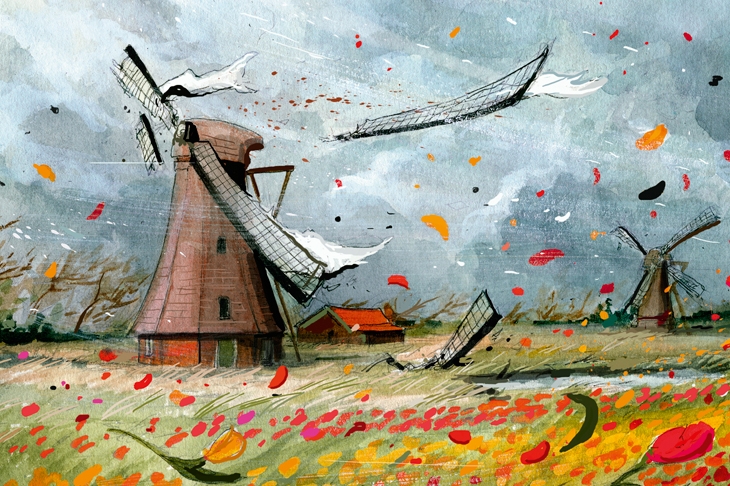On this week’s episode, we discuss the hurricane that’s headed for Holland, the state of parliamentary sovereignty here at home, and whether taxing horses is really the way to go.
First up: with elections in the Netherlands less than two months away, the eyes of Europe’s political pundits are being drawn to the clash between the incumbent People’s Party and the insurgent Party for Freedom, led by the charismatic controversialist, Geert Wilders. Will the Dutch be the next domino to fall to right-wing populism? And what exactly is the deal with Wilders, a man who was banned from travelling to Britain due to his vociferous criticism of Islam? Joining us to discuss are Douglas Murray, who writes on the issue in this week’s magazine, and Melle Garschagen, UK and Ireland correspondent for NRC, the Dutch newspaper.
When pushed for a prediction, Douglas Murray responds that:
“Well I think you’d be a very unwise person, after the last year, to make any predictions on any occasion that the public vote, but I think we can safely say, without insulting anyone who’s Dutch, that Geert Wilders is the aspect of it, from outside Holland, which is most interesting and for many people the most concerning, of course.”
On the subject of Geert Wilders, Melle Garschagen adds:
“He’s been around for quite a while but it looks like this time he is really set to do extremely well in the elections and become the largest, or second largest, party. It’s still two months away and we tend to have a short and furious campaigning season. The big television debates are still to be held, so a lot can change but, for the last couple of months, he has done extremely well and he’s set to shake up the political landscape.”
This week, the Supreme Court ruled against the government in a landmark case regarding the triggering of Article 50. The decision means that Theresa May must take her Brexit plans to parliament, something she had been keen to avoid. Does this mark a return to parliamentary sovereignty? Or are we in danger of reading too much into a court decision that the Prime Minister seems to have taken in her stride? The Spectator’s James Forsyth and Henry Newman, the Director of Open Europe, join the podcast.
In his column this week, James writes that:
“The return of power to Parliament will be good for democratic accountability, the institution and its self-respect. One of the most depressing things about Tristram Hunt’s quitting as an MP to run the Victoria and Albert Museum was the almost unanimous view that he was off to a better job. It might be too much to hope that Brexit will mean that it is once again ‘the highest and most legitimate pride of any Englishman to have the letters MP written after his name’. But by putting parliament back in charge, it will make it far easier for voters to tell whether MPs are doing a good job.”
And Henry Newman agrees that May has shrugged off the Supreme Court ruling:
“I think it’s remarkable that we’ve had one of the biggest constitutional cases in decades, certainly since the Supreme Court was established, and Theresa May seems like she’s about to take this defeat in her stride. It hasn’t really changed the weather. Part of that is her demonstrated ability to unite the party behind her position, part of that is Labour’s weakness, and part of that also is that the defeat was widely expected after the defeat in the Divisional Court.”
And finally, as if ownership of horses weren’t already expensive enough, there are plans to adjust taxes on non-residential properties that could well price stables, stud farms and livery yards out the market. This would be a tragedy for children and those who have yet to experience the joys of horses, writes Simon Barnes in this week’s magazine. So is this a well thought through policy, or something the government have come up with on the hoof? Simon joins the podcast, along with the Spectator’s own Camilla Swift, to extol the merits of the ‘horsey life’:
“It is the most extraordinary thing that we can stretch out beyond the boundaries of our own species to these extraordinary beasts who have taken the drastic evolutionary step of throwing in their lot with ours. At first we needed them for transport, agriculture and warfare. Then we invented the internal combustion engine, so in theory we could’ve got rid of horses, but we didn’t. We kept them on for no reason whatsoever, or, at least, the only possible reason that comes forth is (well, let’s be frank and use a brutal four-letter word) love.”









Comments